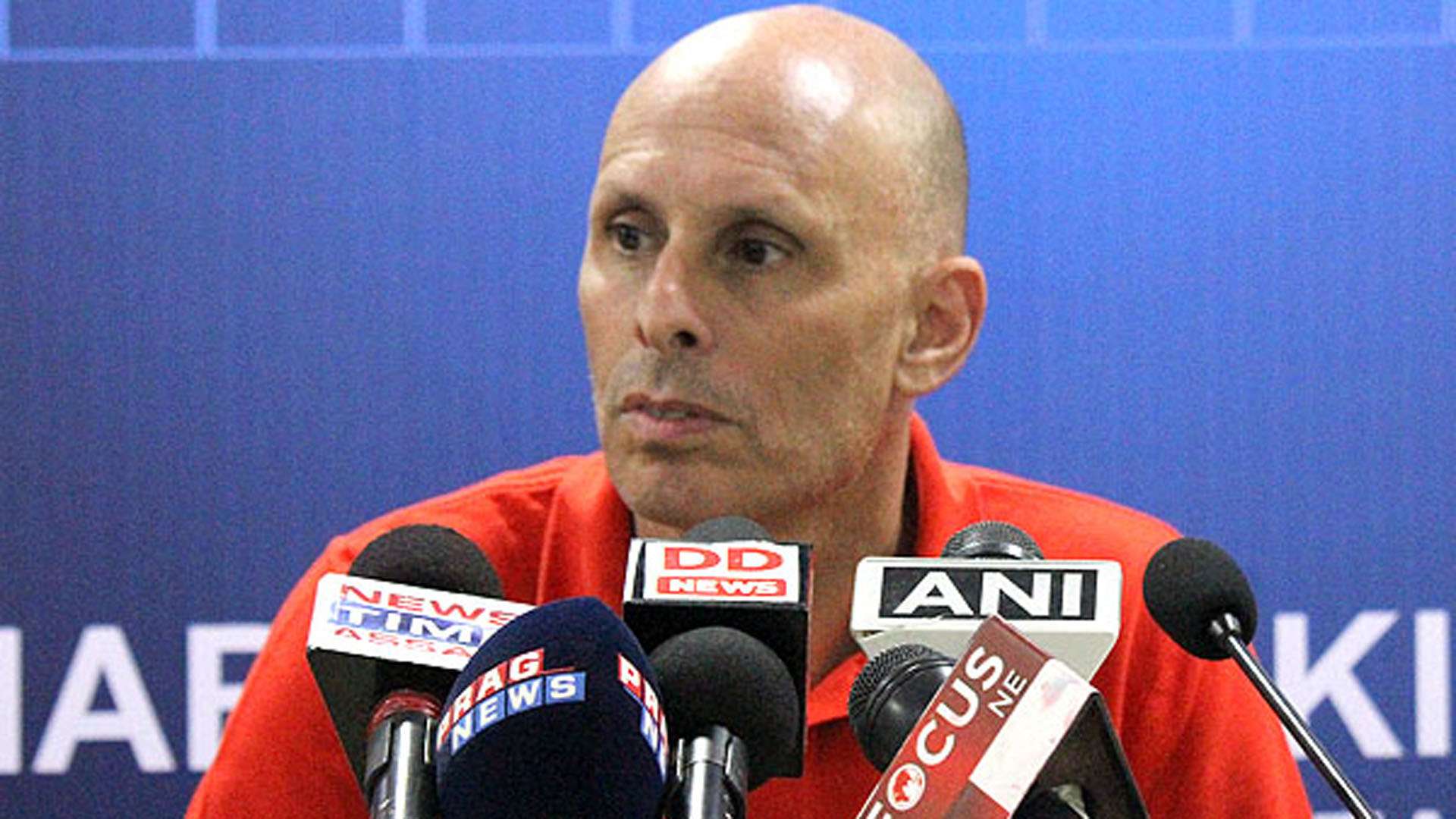To say Stephen Constantine's journey has been an arduous one will be an understatement. From leaving home as a 16-year old due to a tumultuous relationship with his father to leading two nations to their best-ever FIFA rankings in recent times, it has seen many highs and quite a few lows.
'From Delhi to the Den', the autobiography of the celebrated coach talks about his numerous pit-stops, his struggle to get a job in English football, the difficulties of working in developing nations, where sports usually comes lower on the priority list. And it does a pretty good job in telling the story.
The book focuses on tracing Stephen's journey in a chronological manner, starting from a troubled adolescence to becoming a shrewd tactician. While doing that, it also gives an insider's account of how clubs and nations choose gaffers, how politics and sports get intertwined in many third world countries and the industry's amnesia in keeping faith on coaches who have not had a successful playing career.
For an Indian football fan, the chapters talking about his two innings at the helm of the Blue Tigers are the most interesting ones."As I signed the contract, I knew it was a career-defining job," the former Nepal coach said about his first stint when he was chosen without an interview. The three-year long association, which saw India win the LG Cup and Stephen being named AFC manager of the month in October 2003, had a decent role in laying the foundation for the successful years under Bob Houghton that were to follow.
This part of the book talks about how he tried to instil professionalism in the set-up by fighting for better accommodation and kits. His relationships with Bhaichung Bhutia and IM Vijayan make for a good read while the lack of government support before Asian Games, setting up of Football Players Association of India (FPAI) etc also get mentions.
 Getty Images
Getty ImagesHowever, it is the portion about his second spell in India - named 'Fighting the Superstars'- which is full of fireworks. While the previous chapters didn't require Stephen to cross the line of political correctness, commenting on his current job would surely ruffle some feathers. And here, the subject doesn't hold anything back.
Giving a nuanced view of contemporary domestic football, the coach talks about his initial reservations about the Indian Super League (ISL), the importance of including players of Indian origin on a temporary basis and how patience paved the way for his success in the last 15 months. For the first time, we get to know in detail how the involvement of renowned scout Derek Bragg helped the All India Football Federation (AIFF) set up a scouting framework, which is expected to play a key role in spotting talent in the future.
During his 15 years old relationship with India, the former Rwanda head coach has seen the domestic football scenario change much. From the day in 2002 when 10,000 people turned up at the Kolkata airport to catch a glimpse of him after the LG Cup victory to the days in 2017 where less than 100 people paid to watch a top-flight encounter, one point has remained constant - the performance of his team is used as a proxy for the development of Indian football.
Reading the book makes it clear that Stephen also puts paramount importance to the notion that the interest of the national team should be placed before that of all club sides.
Looking beyond the sections related to Indian football, 'From Delhi to the Den' gives insight into how football is run in some other third other countries and how much workload and stress the coaches are subjected to in a job where results are expected every weekend.
Overall, the book, ghost-written by BBC journalist Owen Amos, is a crisp read which will not only be a part of the reading lists of fans interested in Indian football but will also be considered by general football lovers.
As far as the documentation of Indian football is concerned, very few coaches have given such honest accounts of their experiences, with Amal Dutta being the most notable exception. Though football historians and writers might sensationalise sentences like 'Sadly, the AIFF weren't able to resist the ISL' in the future, the book which shines through for its honesty is much more than that.
Goal's rating: 4.5/5

